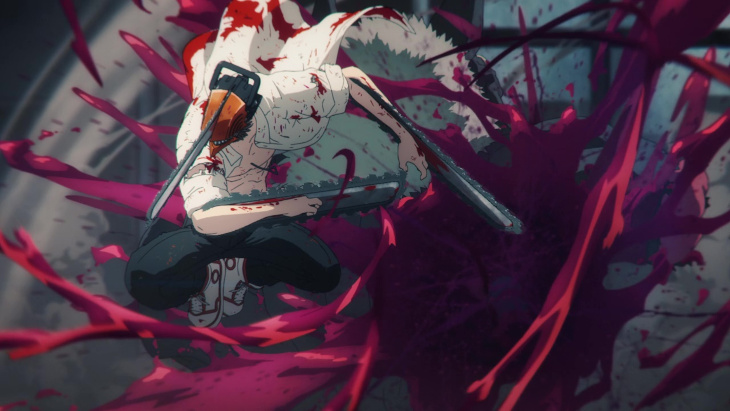
“Denji, you can’t open that door.”
Chainsaw Man is a very odd series, and its peculiarities can make it arduous to actually organize one’s thoughts on it. In a season which included the return of a critical darling with Mob Psycho 100, the second half of one of the year’s biggest hits with Spy x Family, and a new entry in the genre-defining Gundam franchise, Chainsaw Man still succeeded in being the most hotly anticipated anime of not just the season but the year. This sounds like I’m building to an about face, but I’m really not. I’m not going to argue that Chainsaw Man was the best show this season. That honor’s rightly been bestowed upon Mob Psycho 100, and while Chainsaw Man is great, it’s not a close competition. However, Chainsaw Man did offer a bizarre and darkly comedic approach to the shonen formula that doesn’t feel like anything out there. The best comparison I could make would be to say it feels like Jujutsu Kaisen was blended with Mob Psycho, and given a bit of Hellsing Ultimate’s edge. This is still like comparing apples and demonic tomato monsters with hundreds of eyes, but Chainsaw Man is something pretty special, even if the final product does leave me feeling a little detached. The hyper violent insanity might not be up everyone’s alley, but for those who are on board for the crazy train, Chainsaw Man takes home the “What if Quentin Tarantino Directed a Superhero Show Award” of the season.
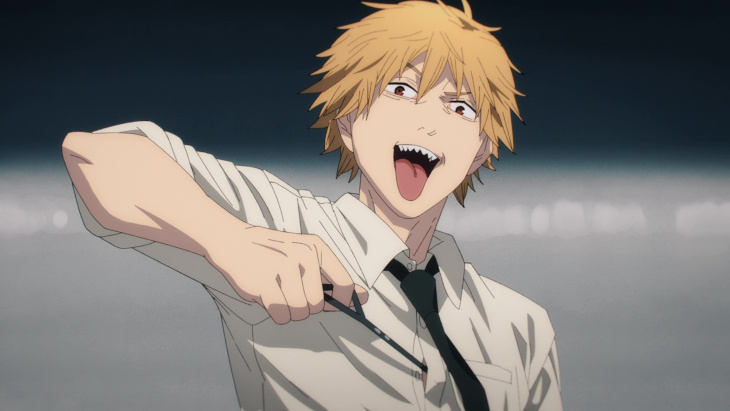
The show follows Denji, a young man who hunts devils for Japan’s Public Safety Division. Denji is an outlandish character in a cast of outlandish characters. On reflection, I think much of my positive and negative criticism for the show is a direct extension of my feelings for the first episode. My understanding of the world is technically better than it was at the end of that first installment, but with more story comes more questions. As such, the ratio of questions to answers doesn’t seem to have shifted any. There is also a trade off that occurs after a few episodes, where I started to become less engaged in Denji’s story and became much more focused on the surrounding cast. Neither of these are issues that truly hold the series back, but they make for an odd viewing experience that is hard to discuss and evaluate without getting into major spoilers. The series brings an off-kilter sense of humor to the table, which never evoked more than a chuckle from me, but that isn’t the primary reason why it’s there. The humor is there to prevent the narrative from being swallowed by its darker elements, and it does a spectacular job. These all feel like offhanded criticisms, but they coalesce into a shockingly cohesive story.
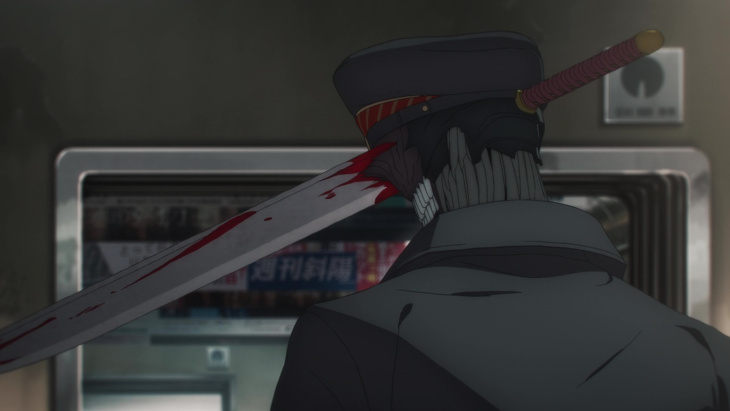
The characters may be the one front where I feel my enjoyment is limited. This isn’t because they aren’t great. They are. However, there is no reliable audience surrogate present to ask the questions that sometimes feel warranted, and this contributes to the sense that we’re viewing the world through a very narrow and insane lens. Denji is the type of lead who takes almost everything short of someone vomiting in his mouth in stride. Regardless, the dynamic he has with many of the surrounding characters is delightful. His primary teammates are Aki, a stoic, if annoyed, Devil Hunter whose pragmatic demeanor is offset by insane aspirations, and Power, a corpse possessed by the Blood Devil whose confident, boisterous and often idiotic nature serve as regular annoyances to her teammates. You can see how this makes for a joyfully chaotic three man team, and I find myself regularly comparing Chainsaw Man to Jujutsu Kaisen, which had a moderately similar set up. The biggest difference in the two titles is tone and thematic cohesion, where Chainsaw Man kicks Jujutsu Kaisen’s ass in both departments.
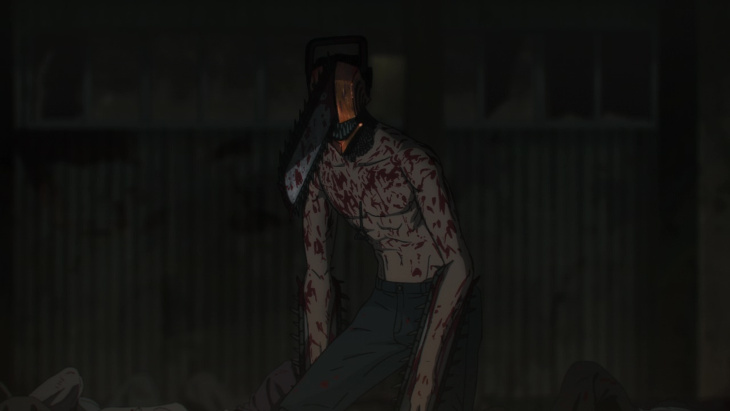
That comparison between Chainsaw Man and Jujutsu Kaisen additionally extends to the production, given that both series were produced by whatever dark gods are on retainer with MAPPA. It’s insane that MAPPA is only about a decade old. While they’ve had plenty of misfires during that time (Someday I’ll forgive them for Listeners), the increase in technical quality has been astounding, and it seems they considered Chainsaw Man to be an opportunity to stretch their creativity a bit further. Between the exceptionally well integrated CG, and the decision to have new EDs for each episode, there’s an abundance of video-audio spectacle on display here. When I watched the premiere, there was a brief instant where the recognition of CG elements took me out of the show, but it was only a single moment. It was also the last time that happened. The CG integration is as close to seamless as I’ve ever seen, and it’s further complimented by MAPPA’s gorgeous 2D animation. The show can get very bloody, as the premiere proved in glorious fashion, but for those who can stomach it, Chainsaw Man proved to be one of the prettiest shows of the year. The opening also became a standout of the season, blending fun character moments, teases of coming plot points, and a cornucopia of movie references, including several nods to the works of the previously mentioned Tarantino. I’d fall short of citing it as the best OP of the season, because I enjoyed Mob Psycho’s a bit more. The decision to have multiple ED’s for the season was a surprising one, and they’re an eclectic bunch. There is a downside, in that none of them stick in the viewer’s memory, since the exposure to the ending is limited to the one episode it’s paired with. Still, it’s a fun, experimental move that ensures you could construct a playlist consisting entirely of the ending themes for the show, and you’d be well served doing so.
Before I wrap up, a few Notes and Nitpicks:
- So, Jujutsu Kaisen follows a human-curse hybrid who works alongside his team, which includes a stoic no-nonsense guy who summons things and a more boisterous female member who favors hammers, as they try to track down the fragments of the ultimate curse so they can eliminate it… It’s a testament to Chainsaw Man’s strengths that I don’t think it’s copying off of Jujutsu Kaisen’s homework.
- There is an odd moment at the end of the season where we hear a bit of narration from a character that I’m sure is meant to set up the next season, but it’s one of those teases that only means anything to the people who have read the manga. For an anime-only viewer, it seems completely meaningless.
- While I haven’t read it, I’m thoroughly unsurprised that this is from the same mind who wrote Fire Punch.
- I mentioned this series may be too bloody for some. This isn’t an issue for me, outside of the cognitive disconnect that can be summarized with the phrase, “This is Shonen Jump!?!” That being said, if you’re planning to introduce this show to someone, be mindful that such gore may not be accessible for all audiences.

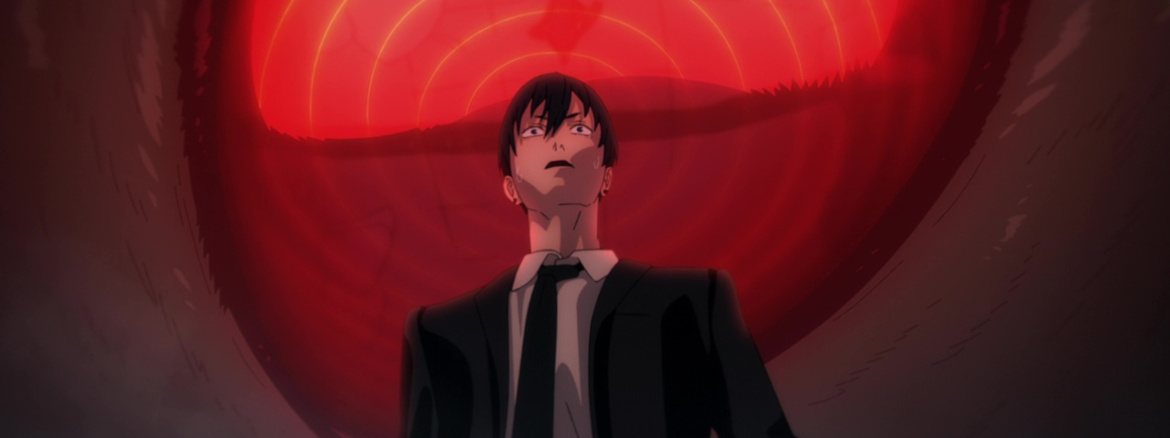
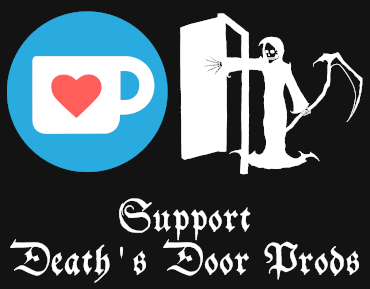

Add comment